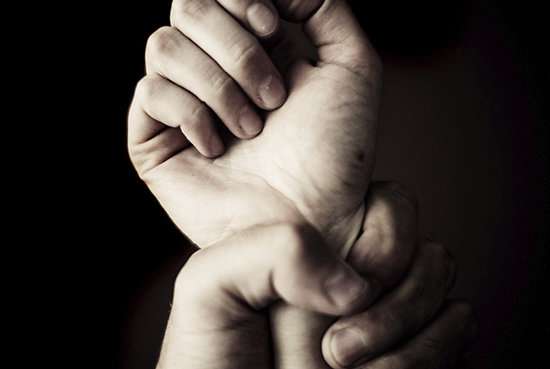Women on temporary visas vulnerable to family violence

Only a fraction of women on temporary migrant visas who are at risk of family violence are accessing the services available to protect them, a new report suggests.
"Temporary migration and family violence: An analysis of victimisation, vulnerability and support" is the first major study in Australia to examine the link between migration status and family violence.
"Based on the estimate that one in four women experience family violence, and the annual average approval of 36,4503 temporary partner visa applications from female applicants, it could be assumed that at least 9112 women across Australia who are on temporary partner visas are experiencing family violence," the report said.
"In 2015–16, there were 529 family violence provision applications made by women on such visas, of which 403 were successful.
"This suggests that there is much to be done in relation to understanding women's experiences and situations, as well as the extent to which victim-survivors who are temporary migrants are aware of their rights and the support agencies that are able to assist them to access these rights."
The report, by Monash University Associate Professor Marie Segrave, was launched by Victorian Multicultural Commission Chair Helen Kapalos on Thursday, October 12, at the Monash Law Chambers.
The report examines the cases of 300 women who sought the support services of the InTouch Multicultural Centre Against Family Violence during 2015–16.
Associate Professor Marie Segrave, said women on temporary migrant visa needed to be "empowered via increasing their confidence and knowledge regarding rights pertaining to migration status and family violence law and support provisions."
"Migration status often adds a layer of complexity and, most often, uncertainty, for women," writes Associate Professor Segrave.
Many women on temporary partner visas have the potential to be protected by the family violence provisions in the Migration Act that enable access to permanent residency if a relationship breaks down due to family violence.
But the report details the limited number of applications to utilise the family violence provision.
The report lays the ground for an urgent review of how well this system is understood and the need to support specialised services that help access the services.
The report also details the ways in which migration status - both for women whose visa is connected to the perpetrator/partner and for those whose visa is not connected to the perpetrator - is used as leverage in situations of family violence. This includes situations where children are involved:
"If the victim-survivor has Australian citizen children, complex migration issues can arise with the potential for women to have to leave Australia while their children remain in the country," Associate Professor Segrave writes.
"Threatening to take custody of dependant (Australian citizen) children if a victim-survivor leaves can be brought into sharp relief for women who believe their migration status will result in them having limited rights as mothers when they are also temporary non-citizens."
The report provides a detailed review of the forms of abuse experienced by women and highlights the need to broaden the definition of risk in the context of family violence. This includes recognising specific practices that may also be identified as trafficking or slavery offences, as Associate Professor Segrave argues:
"There are important overlaps between family violence and situations that are akin to trafficking and slavery offences, as defined in the Commonwealth Criminal Code Act 1995, including forced marriage, domestic servitude, human trafficking and other slavery-like situations. This report brings these situations to the fore and considers how Australia can move forward to better recognise and respond to the critical issues raised in this analysis."She urges the Commonwealth to recognise and support all victims of family violence equally "regardless of migration status or any other point of difference."




















